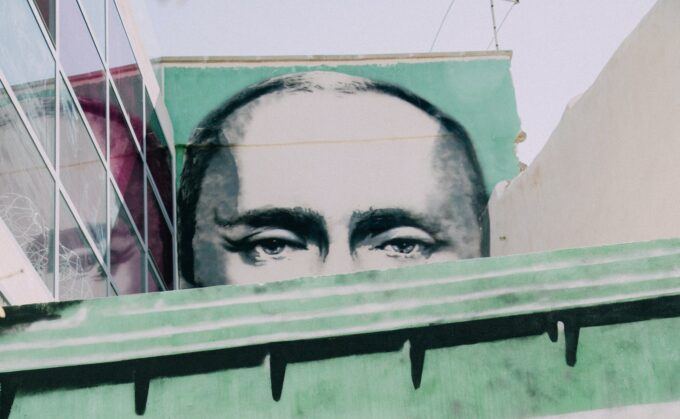by PATRICK COCKBURN

President Vladimir Putin made a carefully calculated response to the death of Mikhail Gorbachev. He went to the hospital where the former Soviet leader died, placed red roses beside his coffin, and stood for a few minutes in silence before departing. His office explained that “regrettably, the president’s working schedule would not allow him” to attend Gorbachev’s funeral in Moscow on Saturday.
Instead, Putin traveled to the isolated Russian territory of Kaliningrad on the Baltic to reiterate his determination to wage a successful war in Ukraine. He described it as “an anti-Russian enclave” created by foreign powers that “is threatening our country.”
In other words, Putin is doubling down on winning a war that is proving as risky for the Russian state as the radical changes introduced by Gorbachev during his years in power between 1985 and 1991. Unsurprisingly, Putin wants to avoid any close association with a man who presided over the dissolution of the USSR and failed utterly in his ambition to modernise the Communist party and the Soviet state.
A long war he cannot win or end
But Putin’s failure may be as momentous as Gorbachev’s because he appears to have locked himself into fighting a long war which he can neither win nor end. Caution is essential here because the outcome of any war depends on numerous wild cards of uncertain value that have yet to be played.
Putin is not alone in his inability to know what to do next: Liz Truss, the likely next prime minister of the UK, has had nothing much to contribute – except a bit of jingoistic bombast – about the greatest military conflict of our age that has helped provoke a devastating cost of living crisis. But her fellow EU foreign ministers have not done much better, deciding this week to end partially a deal with Russia on visas for Russian holiday makers and shoppers.
But the great loser in this war so far is Russia. Putin thought he could win it in a few days because the Ukrainians would not fight. His wishful thinking was bolstered by an opinion poll shown to him by the FSB intelligence showing that only a minority of Ukrainians – though a large one – were prepared to resist a Russian attack. He accepted this wishful thinking because it was in tune with his own over-optimistic views. Invading with far too few ground troops, Putin has never since been able to build up the superior forces that military handbooks assert are essential to invade and occupy a country successfully.
Radio Free for more
